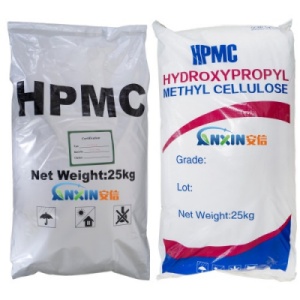Necessity of adding cellulose to mortar and gypsum based products
Mortar and gypsum-based products are crucial elements in the construction industry, serving as binding agents for various building materials. These products undergo continuous innovation and enhancement to meet the ever-evolving demands of modern construction. One significant additive in these materials is cellulose, which plays a pivotal role in improving their performance and properties.
Understanding Cellulose:
Cellulose is a naturally occurring polysaccharide found in the cell walls of plants. It is the most abundant organic polymer on Earth and serves as a fundamental structural component in plant tissues. Chemically, cellulose molecules consist of linear chains of glucose units linked together by β(1→4) glycosidic bonds. This unique molecular structure imparts exceptional strength, stability, and resilience to cellulose.
In the construction industry, cellulose finds extensive application as an additive in various building materials, including mortar and gypsum-based products. Its incorporation serves multiple purposes, addressing several challenges encountered during the manufacturing, application, and performance phases of these materials.
Functions of Cellulose in Mortar and Gypsum-Based Products:
Water Retention:
One of the primary functions of cellulose in mortar and gypsum-based products is its ability to retain water. Cellulose fibers possess a high capacity for absorbing and holding water within their structure. When added to these materials, cellulose acts as a water-retaining agent, ensuring adequate hydration of the cementitious or gypsum components. This prolonged hydration process enhances the workability of the mixture, allowing for better application and improved adhesion to substrates.
Improved Workability and Cohesion:
The presence of cellulose fibers in mortar and gypsum-based products enhances their workability and cohesion. Cellulose fibers act as a reinforcement agent, effectively dispersing throughout the mixture and forming a three-dimensional network. This network reinforces the matrix, preventing segregation and improving the overall consistency and homogeneity of the material. As a result, the mixture becomes easier to handle, spread, and shape, leading to enhanced workability during construction activities.
Crack Prevention and Shrinkage Control:
Another crucial role of cellulose in these materials is its contribution to crack prevention and shrinkage control. During the drying and curing phases, mortar and gypsum-based products are susceptible to shrinkage and cracking due to moisture loss and internal stresses. Cellulose fibers help mitigate these issues by providing internal reinforcement and reducing the formation of micro-cracks. By improving the tensile strength and ductility of the material, cellulose enhances its resistance to shrinkage-induced cracking, thereby promoting long-term durability and structural integrity.
Enhanced Mechanical Properties:
Cellulose reinforcement imparts enhanced mechanical properties to mortar and gypsum-based products. The addition of cellulose fibers increases the material’s flexural and tensile strength, impact resistance, and durability. This improvement in mechanical performance is particularly beneficial in applications where the material is subjected to structural loads, external forces, or environmental factors. By strengthening the matrix and reducing the risk of failure, cellulose enhances the overall performance and longevity of the finished structure.
Compatibility with Sustainable Practices:
Cellulose is derived from renewable sources such as wood pulp, cotton, or recycled paper, making it inherently sustainable and environmentally friendly. Its use in mortar and gypsum-based products aligns with the industry’s growing emphasis on sustainable construction practices and green building initiatives. By incorporating cellulose additives, manufacturers can reduce their reliance on non-renewable resources and minimize the environmental impact of their products. This compatibility with sustainable practices further underscores the necessity of cellulose in modern construction materials.
the addition of cellulose to mortar and gypsum-based products is not just a matter of choice but a necessity driven by the need for enhanced performance, durability, and sustainability. Cellulose serves a multitude of functions, including water retention, improved workability, crack prevention, and mechanical reinforcement. Its unique properties and compatibility with sustainable practices make it an indispensable additive in modern construction materials. As the construction industry continues to evolve, the importance of cellulose in mortar and gypsum-based products will only grow, shaping the future of sustainable and resilient building practices.
Post time: Apr-02-2024
